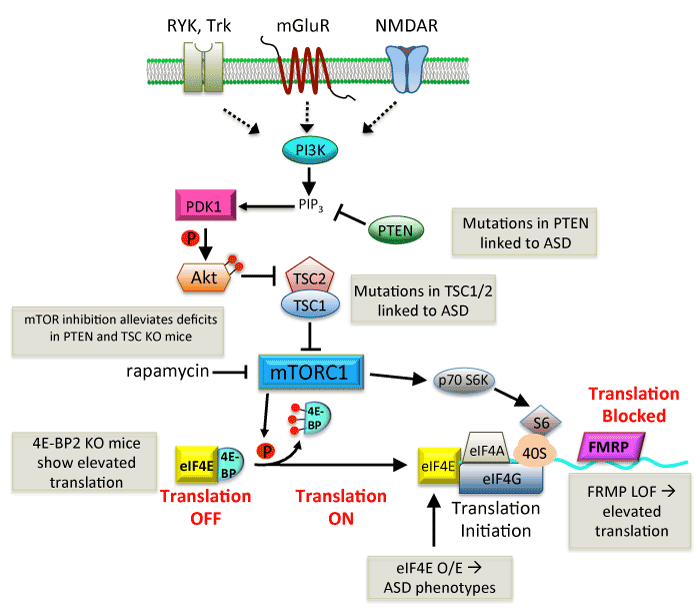
 |
| Figure 1: Dysregulation of the PI3K/Akt/mTOR pathway in ASD. The mTOR pathway integrates multiple inputs, such as RYK/ Trk receptors, NMDARs and mGluRs. Activation of PI3K phosphorylates and converts PIP2 to PIP3, leading to PDK1-mediated Akt activation. The Akt signaling cascade inhibits the TSC1/2 complex removing its inhibition on mTORC1. Activated mTORC1 phosphorylates 4E-BP, releasing eIF4E to form a 4E/4G complex to initiate protein translation. mTORC1 also stimulates translation initiation via p70 S6K-dependent phosphorylation. Mutations in PTEN and TSC1/2 cause hyperactivity of the mTORC1-eIF4E pathway and have been linked to ASD. 4E-BP2 inhibits translation by competitively binding eIF4G and preventing its interaction with eIF4E. Either loss of 4E-BP or over-expression of eIF4E enhances cap-dependent translation. Loss of function of FMRP, which binds to mRNA and inhibits translation, results in excess protein synthesis, while mTOR inhibition with rapamycin is sufficient to alleviate ASD phenotypes. |